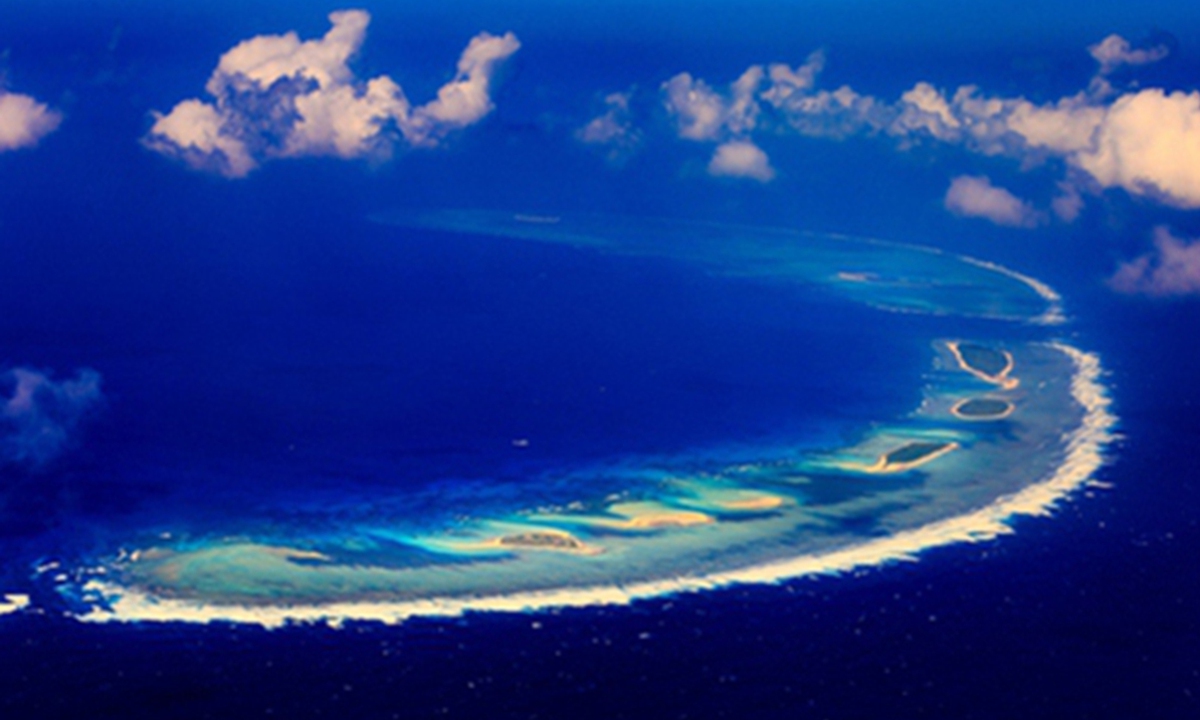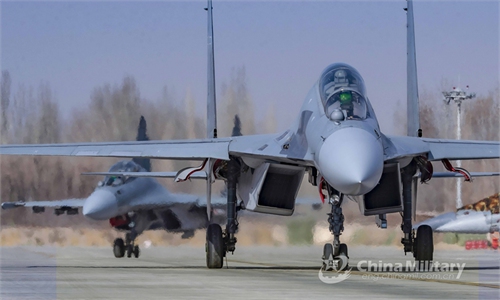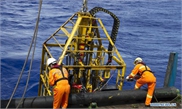
Xisha Islands in the South China Sea Photo: VCG
This year marks the 20th anniversary of the signing of the Declaration on the Conduct of Parties in the South China Sea (DOC). The declaration, signed in Phnom Penh, Cambodia in 2002, is the first political document among China and ASEAN Member States to address the South China Sea issue at the regional level.With the end of the Cold War, tensions in the region started to ease, and cooperation and development began to dominate regional engagement. As China and Southeast Asian countries entered the fast track of growth in their diplomatic relations, regional countries have increasingly come to realize that the correct approach to handle the South China Sea issue shall be to put aside disputes, seek common ground while reserving differences, engage in dialogue and consultation, and work for win-win results. Under this context, the DOC, with its signing and effective implementation, cannot be a more timely answer to the call of the region, showcasing the ever-growing relations between China and ASEAN Member States.
Looking back over the past 20 years, despite occasional turbulence, the overall situation in the South China Sea has remained peaceful and stable, and the DOC deserves great credit. China and ASEAN Member States have every reason to be proud of this historical document, one that has blazed a trail on many fronts.
The DOC has set a foundation of mutual trust between China and ASEAN Member States. The signing of the DOC was a major step in creating a mechanism for dealing with the South China Sea issue. It has effectively enhanced the political mutual trust among regional countries and laid a solid foundation for the further development and upgrading of China-ASEAN relations. The purposes, principles and specific measures established in the DOC embodied regional countries' greatest consensus and willingness for future efforts and have thus been repeatedly confirmed in the documents jointly issued by China and ASEAN Member States over the years. The DOC itself has a strong binding and regulatory force in the political sense, thus becoming the basic instrument that all parties refer to when it comes to the South China Sea issue.
The DOC has found the basic path for handling disputes in the South China Sea. Article 4 of the DOC reads, "The Parties concerned undertake to resolve their territorial and jurisdictional disputes by peaceful means… through friendly consultations and negotiations by sovereign states directly concerned." Under such guidance, China has established bilateral consultation mechanisms on the South China Sea issue with the Philippines and Vietnam and has maintained close communication and dialogue with countries including Malaysia and Brunei on maritime issues. Unfortunately, the Philippines staged the South China Sea arbitration in 2016, a political farce indeed, directly challenging Article 4 of the DOC, which was met with firm opposition from China and serious concerns from other regional countries. Shortly after the illegal ruling was out, the foreign ministers of China and ASEAN Member States issued a joint statement on the full and effective implementation of the DOC, bringing the South China Sea issue back on the right track.
The DOC has created guidelines of self-restraint for claimant states. According to Article 5 of the DOC, "The Parties undertake to exercise self-restraint in the conduct of activities that would complicate or escalate disputes and affect peace and stability including, among others, refraining from action of inhabiting on the presently uninhabited islands, reefs, shoals, cays, and other features and to handle their differences in a constructive manner." Prohibition of new occupation of islands or reefs is crucial, which could effectively prevent the issue from getting out of control and the possible escalation of tensions in the South China Sea. This key role of the DOC in crisis prevention has been affirmed by scholars from regional countries at the sub-forum on South China Sea during the recent Boao Forum for Asia Annual Conference in Hainan.
The DOC has built an important platform for practical maritime cooperation. It encourages all parties to strengthen military dialogue, including voluntary notification of military exercises. And it also stipulates to explore or undertake practical cooperation in marine environment protection, marine scientific research, safety of navigation and communication at sea, search and rescue, and combating transnational crimes. Under the DOC framework, China and ASEAN Member States have carried out meaningful and fruitful cooperation over the years. China and ASEAN Member States issued the declaration for a decade of coastal and marine environmental protection in the South China Sea on the occasion of the 20th ASEAN-China Summit, established a hotline communication platform among senior officials of the Ministries of Foreign Affairs in response to maritime emergencies, and agreed to apply the Code for Unplanned Encounters at Sea in the South China Sea, to name a few. Meanwhile, a series of seminars, training courses and tabletop exercises were successfully held in the fields of marine disaster prevention, marine ecological environment and monitoring, marine scientific research as well as among maritime law enforcement agencies.
As the regional situation continues to evolve, it is also important to develop regional rules to ensure long-term peace, stability and order in the South China Sea. The parties made their commitment in the DOC to work toward the eventual attainment of a Code of Conduct (COC) in the South China Sea on the basis of consensus, which charted the course for future rules-making and mechanism-building in the South China Sea. The COC consultations have maintained good momentum and achieved continued progress since its launch in 2013. The parties have further enhanced trust and accumulated consensus through the process. As a matter of fact, the consultation itself is part of the confidence-building measures in the South China Sea. The COC, which is based on the DOC and expected to be an upgraded version of the DOC, will be more substantive and better guide regional countries to engage in dialogue and cooperation.
For some time now, there have been some voices that claim the United Nations Convention on the Law of the Sea (UNCLOS) as the legal basis for resolving all maritime issues. UNCLOS is undoubtedly important. Yet its importance should never be overrated, given the limitations of the times when it was born. UNCLOS would by no means be the entirety of the law of the sea. More importantly, the Convention deters itself from application in any disputes concerning the sovereignty of islands and reefs, while the core of the South China Sea issue is territorial disputes.
The DOC and the future COC are important practices for exploring the application of both UNCLOS and general international law in the region. They should be regarded as the over-arching instruments for dealing with the South China Sea issue. And most importantly, articles about the proper handling of maritime disputes, exercising self-restraint and enhancing military confidence-building go far beyond the scope of UNCLOS. In this sense, the DOC and the COC would not only serve peace and stability in the region, but also develop the law of the sea in the modern day.
The DOC, upon 20 years of implementation, has been one of the best practices that pools valuable experience of regional countries in dealing with complex issues. As long as the regional countries firmly commit to the spirit of the DOC, adhere to deepening dialogue and cooperation for the vision of building a community with a shared future for all, a high-quality COC will be inked in the near future and the South China Sea will stay as a sea of peace, friendship and cooperation.
The author is a current affairs commentator. opinion@globaltimes.com.cn


